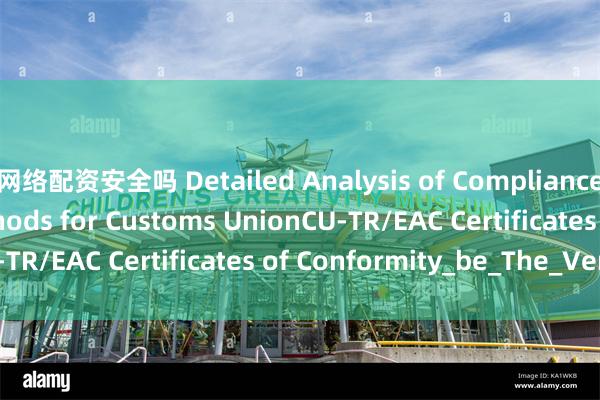|
Detailed Analysis of Compliance Verification Methods for Customs Union CU-TR/EAC Certificates of Conformity网络配资安全吗 I. Certification Body Qualification Verification Scope of Authorised Bodies The issuing body must be a certification body or laboratory registered with the Eurasian Economic Union (EAEU, formerly the Customs Union). Its qualifications can be verified through the national standards agencies of member states (e.g., Rosstandart in Russia). The institution code typically begins with ‘RA RU’ (Russia) or a similar prefix (e.g., ‘KZ’ for Kazakhstan), indicating its authorization to issue certificates under specific technical regulations (e.g., TR CU 004/2011). 展开剩余83%Certificate Registration and Verification All EAC certificates must be registered in the EAEU's unified registration system. Certificate numbers, validity periods, and product scopes can be verified through the EAEU's official website or the issuing authority's website. II. Certificate Types and Scope of Application EAC Certificate of Conformity (COC) Applicable Products: Medium-to-high-risk products (e.g., machinery, medical devices, children's products, etc.) that require mandatory certification. Certificate holders: Any enterprise (including foreign manufacturers) may apply, but must pass factory audits and sample testing. Validity period: Single batch, 1 year, 3 years, or 5 years (the 5-year period requires the enterprise to hold an ISO 9001 certificate). EAC Declaration of Conformity (DOC) Applicable Products: Low-risk products (e.g., certain light industrial products), where the certificate holder must be an enterprise within the Union and only document review is required. III. Core Steps for Compliance Verification Document Review Verify the completeness of technical documents (in Russian), including product manuals, test reports (issued by an EAEU-accredited laboratory), ISO 9001 certificate (if applicable), etc. Verify that the application form and product information (model number, customs code) are consistent. Testing and Factory Audit Sample testing: Single-batch certificates require samples to be sent to an overseas laboratory; continuous certificates (1/3/5 years) require overseas testing plus a factory audit. Factory Audit: Inspect production equipment, quality control systems, and personnel qualifications to ensure compliance with TR regulations. Marking and Clearance The EAC mark must be permanently affixed to the product or packaging, with a height of ≥5mm and clearly legible. A copy of the certificate must be provided during clearance, and customs will verify the registered information. IV. Common Risks and Precautions Identifying Counterfeit Certificates Counterfeit certificates typically lack a registration number or have invalid institution codes. They can be verified directly through the alliance's official website or the issuing authority. Be cautious of low-cost, fast-track certification services; compliance processes require time (conformity declaration takes approximately one week, while a certificate of conformity may take several months). Regulatory Updates Technical regulations are continuously expanding (e.g., mandatory certification for automotive components added in 2024). Regularly confirm whether products are subject to new regulations. 5. Summary Compliance verification requires a ‘three-pronged’ approach: Institutional qualifications (authorisation code + registration); Certificate content (type, validity period, product matching); Markings and documents (EAC marking standards, authenticity of test reports). It is recommended to use authorised institutions (such as Shanghai Jinghe Industrial) to avoid legal risks. 认证机构:上海经合工业设备检测有限公司 Certification body: Shanghai Jinghe Industrial Equipment Testing Co.网络配资安全吗, Ltd. 发布于:上海市 |

